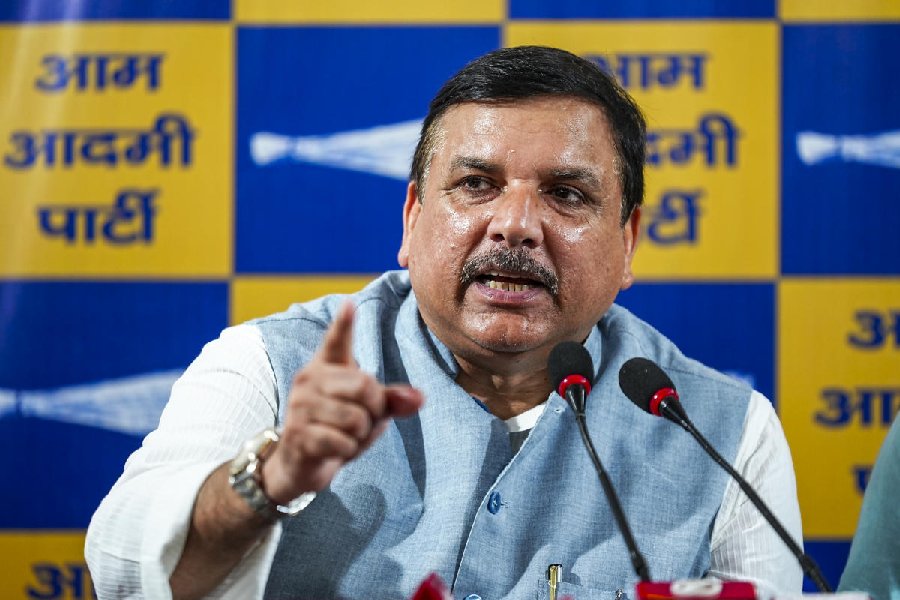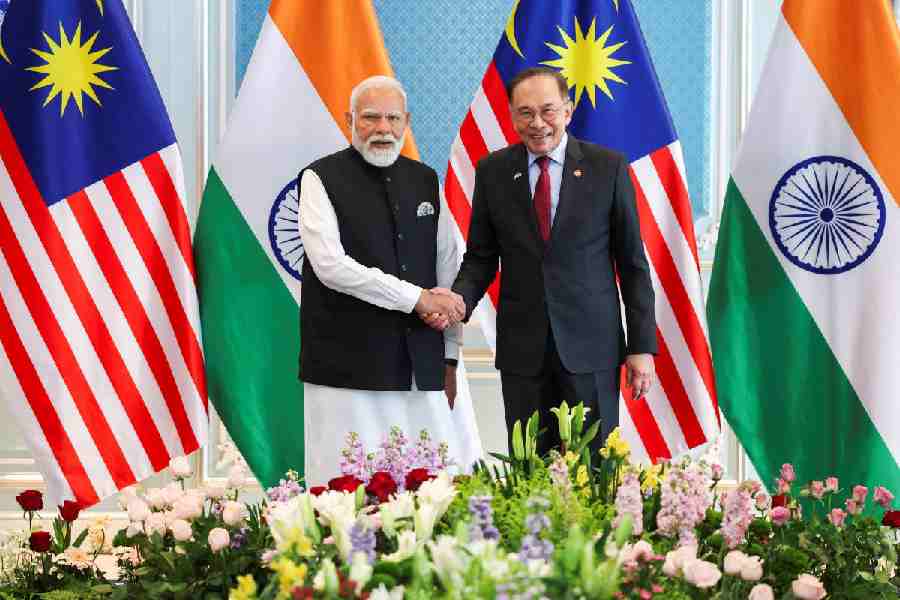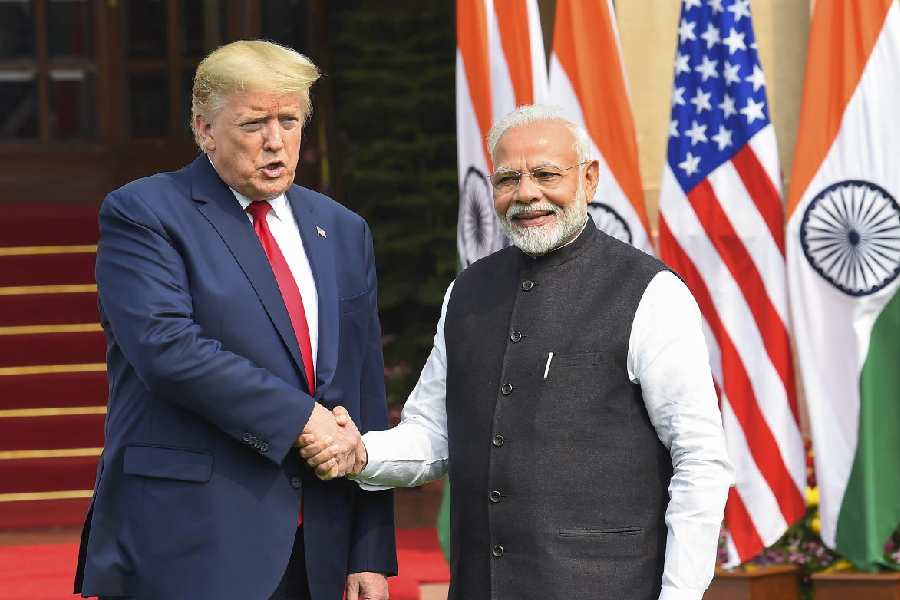|
|
| Shatarup Ghosh |
To be or not to be a politician — that is the question which has often riddled young urban minds in Bengal during the last decade. On the one hand, many of us have been terrorized as teenagers by stories of cruelty, disillusionment and violence in student politics. Such stories would often be used by parents and elders to keep their children safely away from that horrific, career-destroying thing called ‘politics’. On the other hand, accusations of being ‘apolitical’, selfish, irresponsible and cowardly have been amply hurled at our generation. This has made us guilty about not taking the plunge, and yet jittery about the consequences of doing so. Additionally, romantic accounts of the valour and sacrifice of student leaders during the chhatra andolon of the 1970s have had a mushy effect on our imagination. Idealistic fervour is inherent to our culture and identity in any case — whether it is the influence of a homegrown Salil Chowdhury or a faraway Bob Dylan.
Shatarup Ghosh, the youngest candidate to contest the 2011 assembly elections for the Communist Party of India (Marxist), seems to be one of us indeed. He too has revelled in idealism, listening to Bob Dylan and Salil Chowdhury. And he too wears fashionable faded jeans and Fabindia kurtas. Just like us. He has a lot to say about politics, just like us. Only, he has done what most of us couldn’t. He has taken the plunge.
Shatarup, as he says, had nurtured the aspiration of joining politics from a very young age, encouraged by his leftist family. He joined the Student Federation of India as soon as he set foot in Asutosh College, and went on to become a student leader. His journey from there to the place of contestant in the assembly polls seems to have been surprisingly smooth. Now he is the centre of attention in the Kasba constituency. The prospect of a 25-year-old MLA seems to be quite amusing for many. People flock to have a peek at him, just to see what this ‘wonder-boy’ looks like. The fanfare surrounding Shatarup has a lot to do with his age. His boyish looks inspire a tender adoration in many, especially since the image of that formidable, dhoti-clad, 50-something politician blabbering away in a hoarse voice has become nerve-wrackingly boring. Those who would vote for Shatarup in the forthcoming polls are likely to do so out of curiosity more than anything else.
When Shatarup sets out to ask for votes in the lanes and bylanes of Kasba, he addresses people personally, a nod here and a smile there, and his familiarity does seem to affect the voter. Shatarup is counting on door-to-door campaigns more than mass rallies; it looks as though he is banking on the emotive response. This, no doubt, has been a wise move. One can see the voters’ eyes soften at his youthful and energetic appeals. Shatarup, on the other hand, looks quite dazed and animated by the attention being showered on him. When walking at the head of a rally, one cannot miss the childlike wonder in his eyes.
During a mass meeting which Buddhadeb Bhattacharjee attended to support Shatarup, there was not much excitement in the crowd when for a good one hour the aged lot rattled on and on. But when Shatarup mounted the stage for a short speech, his demeanour did motivate the crowd, in a way. I heard a group of maidens to my left chattering in excited whispers about how charming he looked. An aged gentleman said with some nostalgia how he saw his young self in Shatarup. But not many seemed to be paying attention to what he was actually saying. This may be because what he was saying was not much different from what the others on stage were saying, and what the comrades have been saying for decades now. He was just saying it more eagerly and perhaps with much more conviction.
Shatarup spoke to me over the phone with the same eagerness and conviction. He thinks it is just a “myth” that young people are apathetic to politics. “During the 70s there was a vibrant movement amongst the students because they were threatened and challenged. They fought back. After that, when things calmed down, the energy died out as well, the enthusiasm faltered. Now, once again, there is a challenge to take up for the young people in colleges. There has been much bloodshed because of campus violence. And we are not afraid to fight it. We will not sit and watch while our fellow students die. Once again, vibrancy is returning to student politics.” He also said it was lamentable that some students had been “misused” by certain political parties, and that the disillusionment could turn fatal. “Whenever a student is exploited, it is unfortunate.”
There seems to be some honesty in Shatarup’s claim that his goal for the moment is to end violence in student politics and bring about an environment of healthy debate. But his vision beyond that is rather foggy. When asked about his opinion on the issues of development, industrialization and land dispute in Bengal, Shatarup merely repeated the CPI(M)’s hackneyed views. No new horizon emerged from his words. This is worrying, given that he embodies the young Bengali’s dreams of political activism. (Shatarup prefers to call himself “a political activist” rather than “a politician”.) But what shows from behind the polished, confident and energetic rhetoric is a constricted, confused and half-hearted plan for tomorrow.
Compared to the image of the rebellious student leader of the 1970s, ready with a blueprint to change the world, Shatarup somehow seems dwarfed, and a tad too childish. However, it has to be admitted that there is a lot of hardcore political practicality in his approach. What is obvious in his appearance and attitude is that the archetypal image of the chhatra neta has undergone a sea change. From the angry and unkempt lad barking slogans, he has now become smarter, more poised and elegant — exuding a coolness born perhaps not so much out of ideological conviction but out of a matter-of-fact strategy focused on his vote bank.












